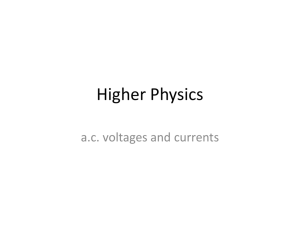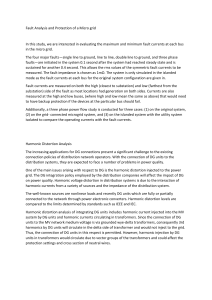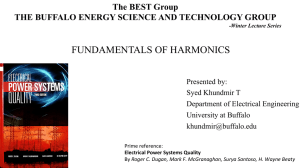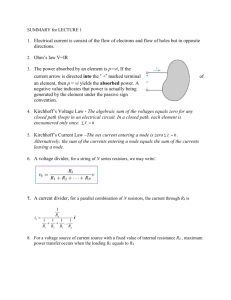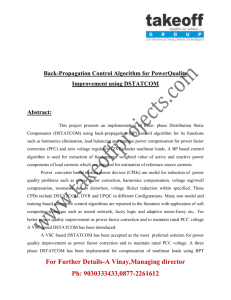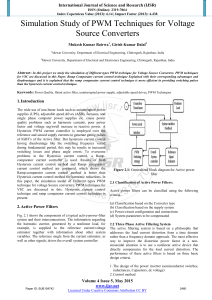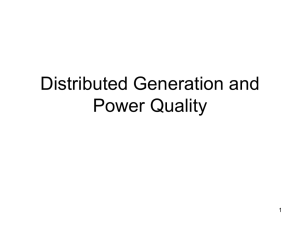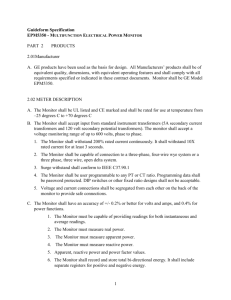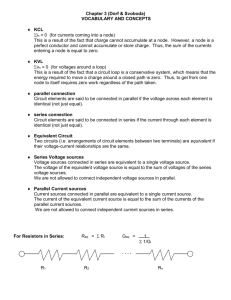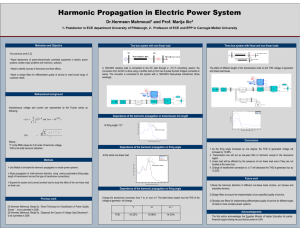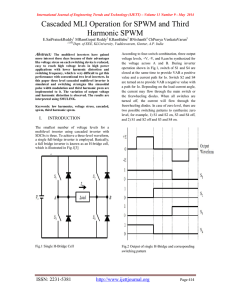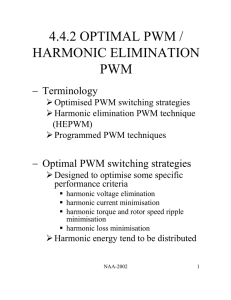i. introduction
advertisement
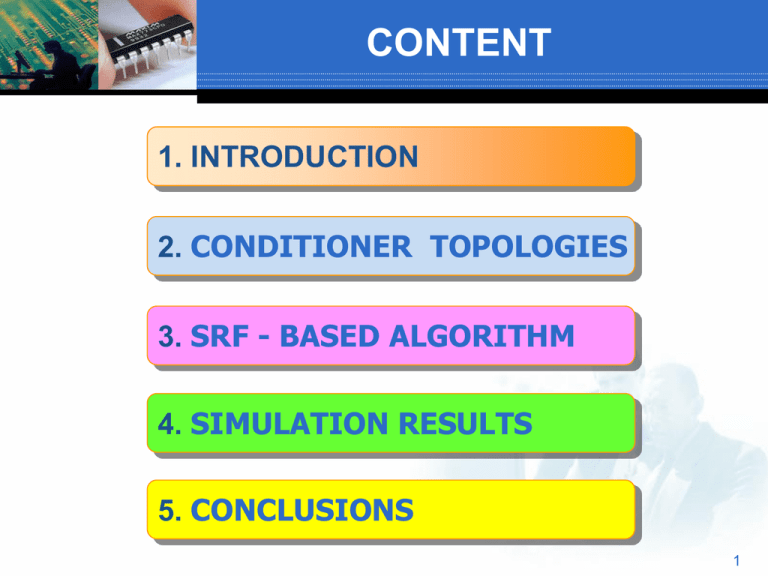
CONTENT 1. INTRODUCTION 2. CONDITIONER TOPOLOGIES 3. SRF - BASED ALGORITHM 4. SIMULATION RESULTS 5. CONCLUSIONS 1 I. INTRODUCTION Harmonic pollution of the power supply system has risen significantly in recent years due primarily to an increase of nonlinear loads Residential and commercial Industrial customers 2 I. INTRODUCTION - Power supply voltages become distorted due to the high level of undesired harmonic current drawn from the utility - Voltage sags or swells, voltage unbalances and voltage harmonics have helped to decrease the power quality needed for critical loads. Voltage sags or swells 3 I. INTRODUCTION To solve or minimize some power quality problems, Unified Power Quality Conditioners (UPQC) and Active Power Filters (APF) have been developed 4 I. INTRODUCTION - APFs are normally used to compensate utility voltage disturbances such as sags, swells, unbalances and harmonic voltages - Shunt APFs have commonly been used to suppress the harmonic currents of the nonlinear loads Harmonics Power Filtered 5 II. CONDITIONER TOPOLOGIES static switch DCLink Load Power Supply series PWM converter Parallel PWM convert er Fig. 1. Conditioner Topologies: UPQC and Line-interactive UPS system. 6 II. CONDITIONER TOPOLOGIES - When the UPS system is implemented, an additional static switch ( sw ) is used to provide the disconnection between the UPS system and the power supply. - The series PWM converter must behave as a current source with a high enough impedance to isolate the line from the load harmonic currents. - The parallel PWM converter must behave as a voltage source with a high enough admittance to absorb the harmonic currents of the load 7 III. SRF - BASED ALGORITHM - The SRF-based algorithms can be used to perform load unbalance compensation or to independently compensate each of the three phases. When the load unbalance compensation is implemented the source currents become balanced and sinusoidal - However, when the phases are individually controlled the source currents will be sinusoidal but unbalanced 8
